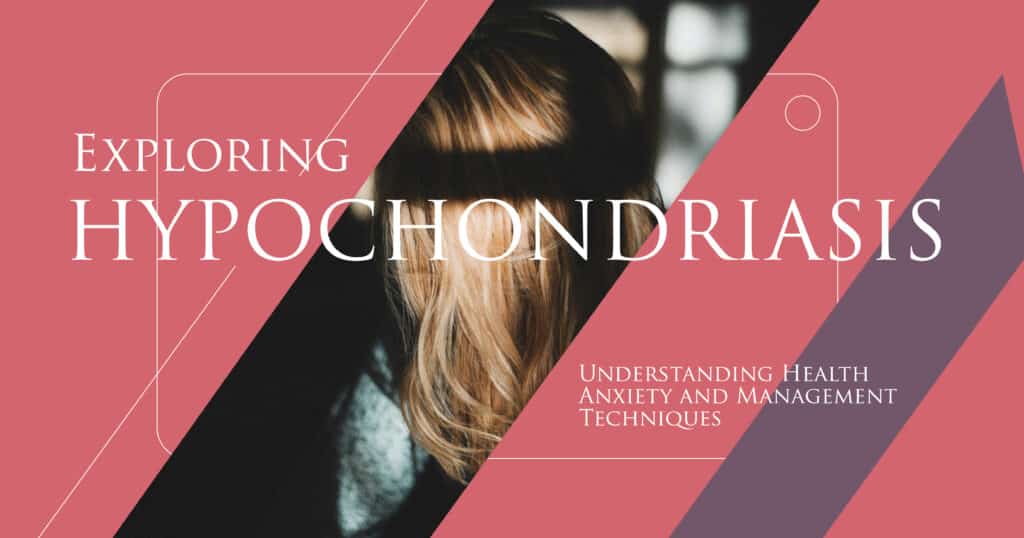Intellectual disabilities encompass a variety of conditions, each with its own characteristics and support needs. Here’s an overview of some of the most common types:
Down Syndrome
Overview: Down syndrome is a genetic condition caused by the presence of an extra 21st chromosome. This extra genetic material affects physical and cognitive development.
Common Symptoms: Individuals with Down syndrome may exhibit distinct physical features such as a flat facial profile, slanted eyes, and a protruding tongue. Cognitive challenges can vary but often include delayed speech, learning difficulties, and problems with memory. Additionally, some individuals may also experience anxiety symptoms related to social interactions, which can be exacerbated by feelings of fear of illness or health concerns.
Support Needs: Support for individuals with Down syndrome typically includes early intervention services, special education programs, and therapies to address developmental delays. Community support and social inclusion also play crucial roles in improving their quality of life.
San Jose Mental Health
Fragile X Syndrome
Overview: Fragile X syndrome is a genetic disorder caused by a mutation on the X chromosome. It is the most common inherited cause of intellectual disability.
Common Symptoms: Symptoms can range from mild to severe and often include developmental delays, language difficulties, and behavioral issues such as hyperactivity and social anxiety. Physical features may include a long face, large ears, and a prominent jaw. Individuals may also present somatic symptoms, including muscle tension and racing heartbeat, particularly in stressful situations.
Support Needs: Individuals with Fragile X syndrome benefit from tailored educational plans, behavioral therapy, and support for social and emotional development. Family support and education are also important to help manage their anxiety symptoms and promote effective coping strategies.
Williams Syndrome
Overview: Williams syndrome is a genetic condition caused by a deletion of genes on chromosome 7. It is characterized by distinctive facial features and cardiovascular issues.
Common Symptoms: Individuals with Williams syndrome often have a friendly and outgoing personality, but they may face learning disabilities, cardiovascular problems, and spatial awareness issues. They may also experience heightened anxiety and sensitivity, leading to excessive worries about their health and potential illness-related preoccupation.
Support Needs: Support includes early intervention services, educational support, and regular medical check-ups. Social skills training and therapies to address anxiety disorders can also be beneficial for managing their physical symptoms.
Autism Spectrum Disorder (ASD)
Overview: Autism Spectrum Disorder (ASD) is a developmental disorder that affects communication, behavior, and social interactions. It encompasses a range of conditions that vary widely in severity.
Common Symptoms: Symptoms can include difficulties with social interaction, repetitive behaviors, and challenges in communication. The spectrum of symptoms means that each individual with ASD may have a unique combination of strengths and needs. Some individuals may exhibit compulsive behaviors related to body checking or fear of physical illness, which can impact their daily living and quality of life.
Support Needs: Support strategies for individuals with ASD often include cognitive-behavioral therapy, speech therapy, and educational interventions. Social skills training and sensory integration therapy can also be helpful in addressing their daily living challenges.
Other Less Common Conditions
- Rett Syndrome: A rare genetic disorder that primarily affects girls and leads to severe cognitive and physical impairments. It usually becomes apparent in early childhood, with symptoms including loss of purposeful hand movements and motor abnormalities.
- Phelan-McDermid Syndrome: Caused by a deletion on chromosome 22, this condition results in developmental delays, intellectual disability, and various physical and medical issues. Support strategies focus on addressing developmental milestones and medical needs.

San Jose Mental Health
Symptoms and Challenges
Understanding the symptoms and challenges associated with intellectual disabilities is crucial for providing effective support. Here’s a closer look at the common symptoms and how they impact daily life.
Common Symptoms of Intellectual Disabilities
- Cognitive Symptoms: Cognitive challenges in intellectual disabilities can include difficulties with learning new information, solving problems, and applying knowledge in practical situations. These challenges can vary widely depending on the type and severity of the disability.
- Adaptive Behavior Symptoms: Individuals with intellectual disabilities may struggle with daily living skills such as self-care, communication, and social interactions. These difficulties can impact their ability to live independently and participate fully in community life.
- Emotional and Behavioral Symptoms: Emotional challenges such as anxiety, depression, and frustration are common. Behavioral issues may include aggression, impulsivity, or withdrawal. Individuals may also exhibit obsessive-compulsive disorder traits, leading to a preoccupation with fears and unexplained symptoms. These symptoms can be exacerbated by the social challenges and stigma associated with intellectual disabilities.
Impact on Daily Life
- Educational Challenges: Educational settings must accommodate the learning needs of students with intellectual disabilities. This often involves creating individualized education plans (IEPs) and providing specialized teaching methods and resources.
- Social and Emotional Challenges: Social integration can be difficult for individuals with intellectual disabilities due to difficulties in communication and social skills. Emotional challenges, such as low self-esteem and isolation, can also arise due to the fear of illness or being misunderstood.
- Family and Caregiver Impact: Families and caregivers often face significant challenges in managing the needs of individuals with intellectual disabilities. This includes providing ongoing support, navigating educational and medical systems, and coping with the emotional and financial demands of caregiving. Some families may also experience major life stress due to the level of anxiety surrounding their loved one’s health and well-being.
Support Strategies for Intellectual Disabilities
Effective support strategies can significantly improve the quality of life for individuals with intellectual disabilities. Here’s a comprehensive look at various approaches to support.
Educational Support
- Specialized Educational Programs: Educational programs tailored to the needs of individuals with intellectual disabilities are essential. This may include specialized classrooms, individualized instruction, and adaptive learning materials.
- Inclusive Education: Inclusive education aims to integrate students with intellectual disabilities into general education classrooms, with appropriate support. This approach fosters social interaction and allows students to learn alongside their peers.
Therapeutic and Medical Support
- Therapies: Various therapies can support individuals with intellectual disabilities, including:
- Occupational Therapy: Focuses on improving daily living skills and motor coordination.
- Speech Therapy: Addresses communication difficulties and helps with language development.
- Behavioral Therapy: Aims to modify challenging behaviors and develop coping strategies for managing anxiety disorders.
- Medical Interventions: Medical treatments may address specific health issues associated with intellectual disabilities. Regular check-ups and monitoring are crucial for managing overall health and well-being, including medical evaluations for associated physical disorders.

Social and Community Support
- Community Programs: Community programs provide valuable opportunities for socialization and skill-building. These may include recreational activities, social skills groups, and advocacy organizations.
- Support for Families: Families and caregivers benefit from support services such as respite care, support groups, and counseling. These resources help manage the emotional and practical aspects of caregiving, especially concerning the financial relationships involved in medical care.
Practical Tips for Daily Life
- Creating a Supportive Environment: Establishing a supportive home environment involves creating routines, using visual aids, and employing effective communication strategies. Safety considerations and adaptive equipment may also be necessary.
- Promoting Independence: Encouraging independence involves setting realistic goals, providing opportunities for self-care, and celebrating achievements. Fostering self-esteem and confidence is key to promoting autonomy, especially when addressing concerns related to Dysmorphic Disorder or Body Dysmorphic issues.
Conclusion
The Path Forward Understanding and supporting individuals with intellectual disabilities is an ongoing journey that requires empathy, awareness, and commitment. By educating ourselves and actively engaging in supportive practices, we can make a meaningful difference in the lives of those affected.
Encouragement for Action Your involvement can create positive change. Whether you’re a caregiver, educator, or community member, there are many ways to contribute to a more inclusive society. Explore local resources, get involved with advocacy efforts, and continue learning to support individuals with intellectual disabilities.
Ready to make a difference? Start by connecting with local support organizations, participating in community events, or educating others about intellectual disabilities. Share your thoughts or experiences in the comments below, and let’s work together to create a supportive and inclusive world!

San Jose Mental Health
Frequently Asked Questions (FAQs)
What are the common causes of intellectual disabilities? Intellectual disabilities can result from various factors, including:
- Genetic Conditions: Such as Down syndrome and Fragile X syndrome.
- Prenatal Exposure: Exposure to substances like alcohol or drugs during pregnancy.
- Complications at Birth: Such as oxygen deprivation or premature birth.
- Environmental Factors: Including malnutrition or severe neglect.
How are intellectual disabilities diagnosed? Diagnosis typically involves:
- Developmental Screening: Early assessments by pediatricians to identify developmental delays.
- Comprehensive Evaluation: Conducted by specialists, including psychological testing, medical evaluations, and assessments of adaptive behavior.
- Observation and History: Collecting information about the individual’s developmental history and behavior.
What are the most effective treatments for intellectual disabilities? Effective treatments vary depending on the type and severity of the disability and may include:
- Early Intervention Services: Targeted at young children to address developmental delays.
- Specialized Education Programs: Tailored educational approaches and individualized education plans (IEPs).
- Therapies: Such as occupational, speech, and behavioral therapies.
- Medical Management: Addressing any associated health issues or conditions.
How can families support a loved one with an intellectual disability? Families can provide support through:
- Creating a Structured Environment: Establishing routines and clear expectations.
- Seeking Professional Help: Accessing specialized education, therapy, and medical care.
- Fostering Independence: Encouraging self-care skills and celebrating achievements.
- Connecting with Support Networks: Joining support groups and community organizations for resources and emotional support.
What role do support groups play in managing intellectual disabilities? Support groups offer:
- Emotional Support: Providing a space for sharing experiences and receiving encouragement.
- Practical Advice: Offering strategies and tips for managing daily challenges.
- Resource Information: Connecting individuals and families with relevant services and organizations.
- Advocacy: Helping to promote awareness and advocate for better services and policies












